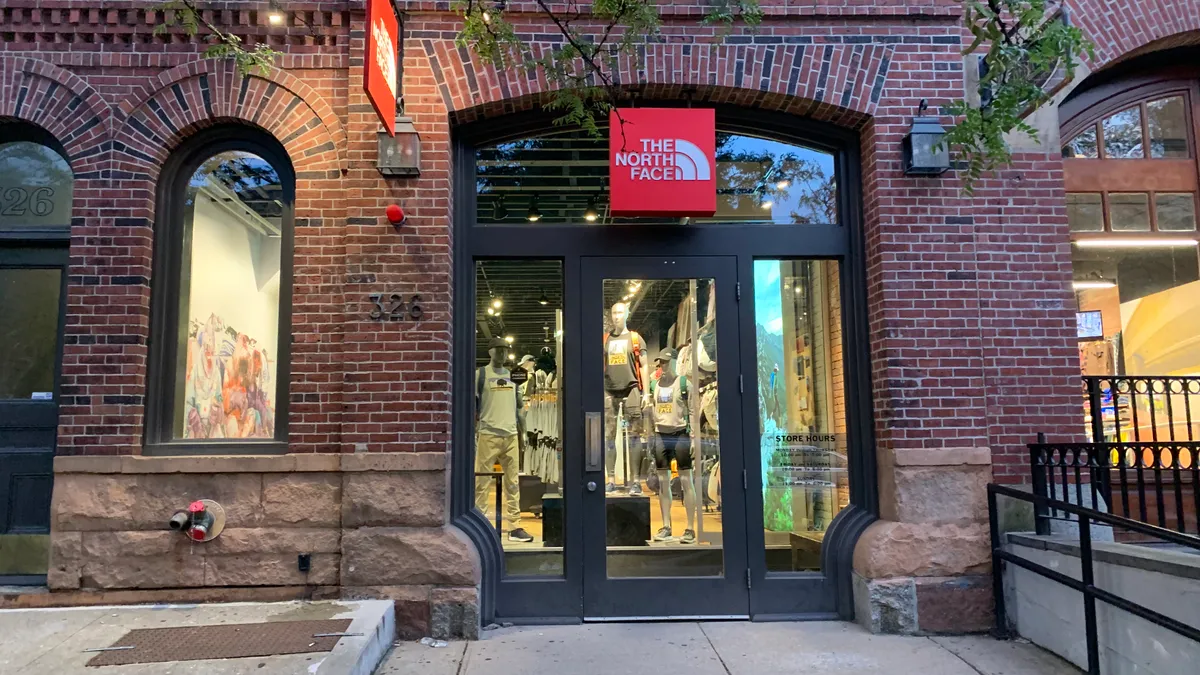UPDATE: June 24, 2020: Ben & Jerry's, Eddie Bauer and Canadian outdoor goods company Arc'teryx have joined the #StopHateForProfit campaign, pausing paid advertising on Facbeook and Instagram. Ben & Jerry's will pause beginning on July 1, while Eddie Bauer and Arc-teryx will pause immediately through the end of July, per tweets from the brands.
Brief:
- Outdoor goods retailers North Face, Patagonia and REI joined a boycott of Facebook organized by civil rights groups that want the social media giant to crack down on hate speech and misinformation. The brands announced their plans in separate tweets marked with the #StopHateforProfit hashtag.
- "We're in. We're out @Facebook," North Face said in a June 19 tweet, and followed up to say the boycott includes all Facebook-owned properties, such as Instagram. "For 82 years, we have put people over profits. We're pulling all Facebook/Instagram advertising for the month of July," REI said later the same day. "Patagonia is proud to join the Stop Hate for Profit campaign," the company tweeted on June 21.
- The Anti-Defamation League (ADL), National Association for the Advancement of Colored People (NAACP), Color of Change, Common Sense, Free Press and Sleeping Giants are partners in the Stop Hate for Profit campaign. They asked advertisers to pull their spending from Facebook in July, and published recommendations on how the social network can address hate speech.
Insight:
North Face and REI were the first brands to announce plans to boycott Facebook as part of the #StopHateforProfit campaign that seeks to pressure the social network into being much more aggressive about removing alleged hate speech from its platform. Patagonia has long been a leading brand with regards to aligning itself with social and political causes, but saw North Face lead the way on this particular charge, possibly giving the latter brand a leg-up with consumers that want to see leadership from brands.
The groups behind the boycott became more aggressive last week with a full-page ad in the Los Angeles Times that urged marketers to stop spending on Facebook in July. The campaign follows years of private discussions among the civil rights groups and Facebook, with activists saying the social media company has done little to improve enforcement of its policies against hate speech and misinformation, The Wall Street Journal reported.
It's too early to tell how many other brands will pull their advertising from Facebook in July, though there are signs of growing support for the #StopHateforProfit movement. 360i, a digital advertising agency owned by Dentsu with clients including McCormick, Discover Financial Services and Unilever, sent an email to clients saying it supports the boycott, the Journal reported in a separate story.
The boycott movement follows weeks of growing tensions between advertises and Facebook over its content-moderation policies in the weeks since the killing of George Floyd while in police custody spurred a global call to end racism and police brutality. Talkspace, a provider of online therapy, this month ended its partnership talks with Facebook after the social network decided not to remove a controversial post from President Donald Trump that was interpreted as a call to escalate violence.
Facebook's content moderation policy also led to internal criticism from "dozens" of employees who staged a "virtual walkout" to protest a decision by CEO Mark Zuckerberg to not take down Trump's controversial post, The New York Times reported. Trump used the same language in a tweet, leading Twitter to mark it with a statement that said, "This Tweet violated the Twitter Rules about glorifying violence. However, Twitter has determined that it may be in the public's interest for the Tweet to remain accessible." Snapchat stopped promoting Trump's account, saying it won't "amplify voices who incite racial violence and injustice by giving them free promotion."
However, Facebook last week took down ads run by President Trump's re-election campaign that featured an upside-down triangle, a symbol the ADL said "is practically identical to that used by the Nazi regime to classify political prisoners in concentration camps," according to CNN.
















